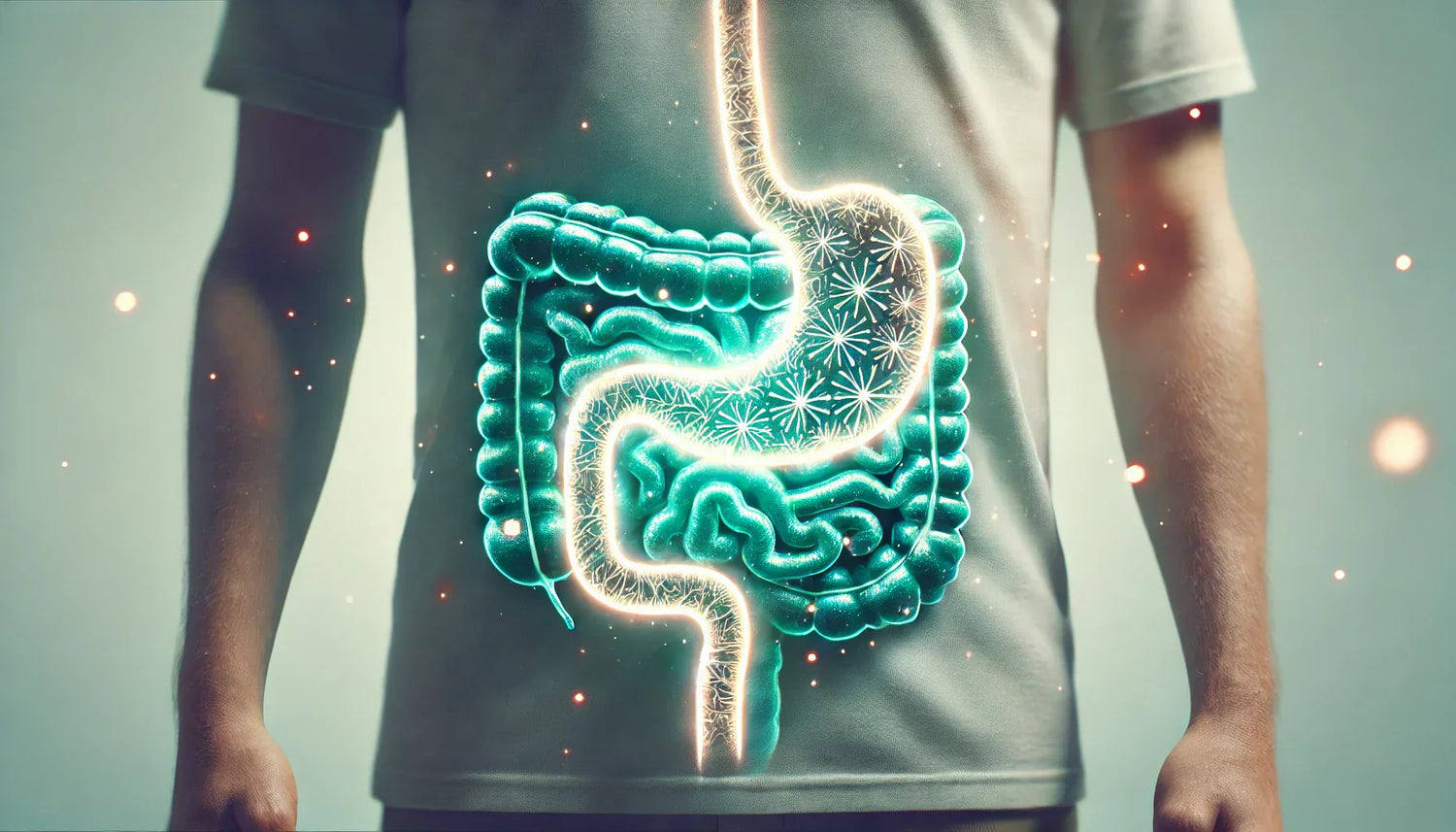01. What is intestinal flora?
Intestinal flora refers to the micro-organisms: bacteria, viruses, fungi, etc. which live in our intestines. The weight of this flora can reach 2 kg. It’s a whole microcosm with bacterial, viral, parasitic or fungal strains that are specific to us . It is said that this microbiota is like our identity card ; each person has their microbiota defined from birth.
Birth of the intestinal flora
The intestinal flora is formed at birth , from the first bacteria and micro-organisms encountered by the infant in its environment.

DELIVERY AND BABY’S INTESTINAL FLORA
During a vaginal birth, the baby will “swallow” the microorganisms present in his mother’s vagina. These first bacteria from the mother's vaginal microbiota will be at the origin of her intestinal flora.
Conversely, during a cesarean delivery, the baby will build up its flora from the micro-organisms encountered in its direct environment , the air of the delivery room.
We will therefore easily understand the difference in microbiota between a baby born vaginally or by cesarean section.

BREASTFEEDING AND CHILDHOOD
The baby continues the formation of his intestinal flora thanks to breast milk which will contain other friendly micro-organisms. The contact of the baby's mouth with the skin of his mother's breast also contributes to the development of his future microbiota.
Then, the intestinal flora will evolve according to epigenetics : dietary diversification, drug treatment or not in early childhood (antibiotics in particular), hygiene (the child puts everything in his mouth: objects, thumb, etc.).
It then stabilizes, even if puberty and lifestyle habits: diet, treatments
medications, pesticides can impact it occasionally.
This flora will participate in many vital functions of our organisms from birth to death: digestion, immunity but also morale and psychological well-being.
The roles of the intestinal flora
The scientific community has focused a lot on the subject over the last 20 years and the role of the intestinal flora is growing with each new article published on the subject.
We are only at the beginning of exciting discoveries around these little hosts and their powers over our health .
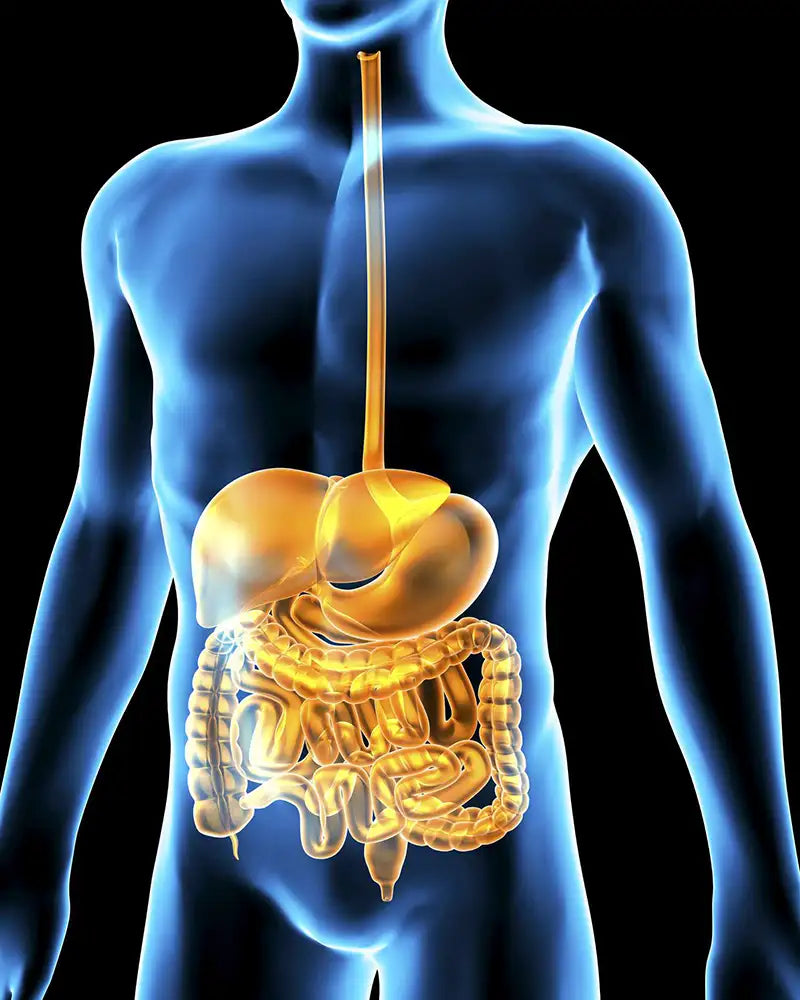
DIGESTIVE FUNCTION
The intestinal flora is not only found in our intestines. It is found throughout the digestive system, esophagus, stomach, small intestine and colon . Its composition varies depending on the pH and the environment; certain bacteria have a well-defined tropism.
The micro-organisms present in the flora will participate in digestive functions. They go
contribute to the cutting of food and are involved in its digestion. The microbiota will facilitate:
- nutrient assimilation
- fermentation of indigestible residues
- synthesis of certain vitamins and amino acids
- absorption of fatty acids
It therefore plays a major role in our digestive functions at all “levels”: stomach, small intestine, colon.
It is estimated that more than 75% of the general population is deficient in vitamin D in winter. However, this vitamin D greatly contributes to our morale and our sleep.
It is wise, in cases of seasonal depression, to supplement with vitamin D on a regular basis. Take advice from your favorite healthcare professional.
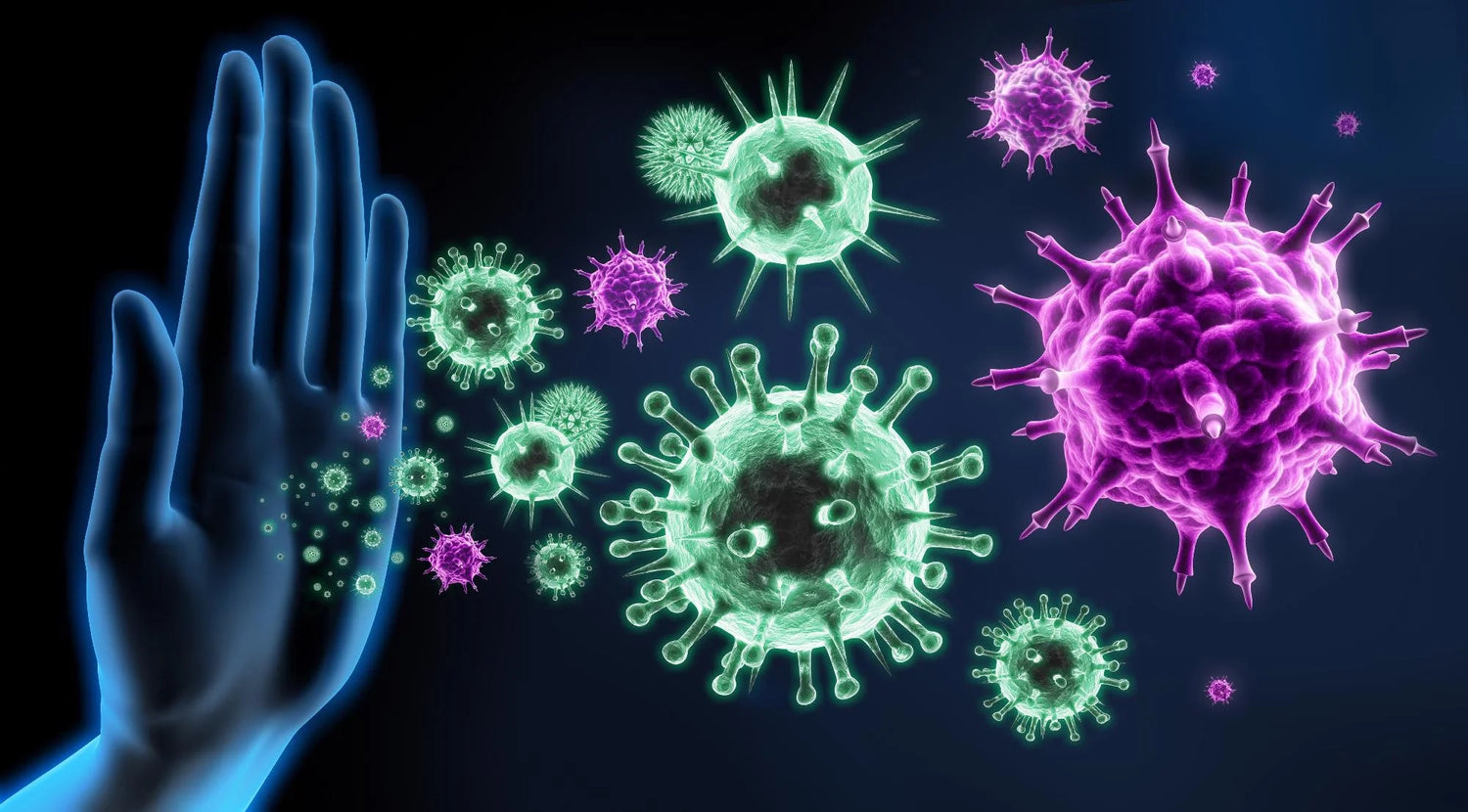
IMMUNE FUNCTION
Intestinal flora lines the lining of our intestines. Behind this mucosa are 60% of our immune cells . The microbiota plays a role in sealing the intestinal barrier. We recall that the intestinal mucosa is a boundary between the self and the non-self. It's like a customs barrier between what is brought from the outside (food, toxins, drinks) and our internal environment.
The intestinal flora constitutes a protective element of the intestinal barrier. Flora provided and in good shape will protect and guarantee the effectiveness of this barrier.
In addition, certain flora-friendly bacteria will compete with pathogenic bacteria likely to penetrate organisms and “fight” against their proliferation.
A varied and active intestinal flora is a guarantee of quality for an optimal immune system.
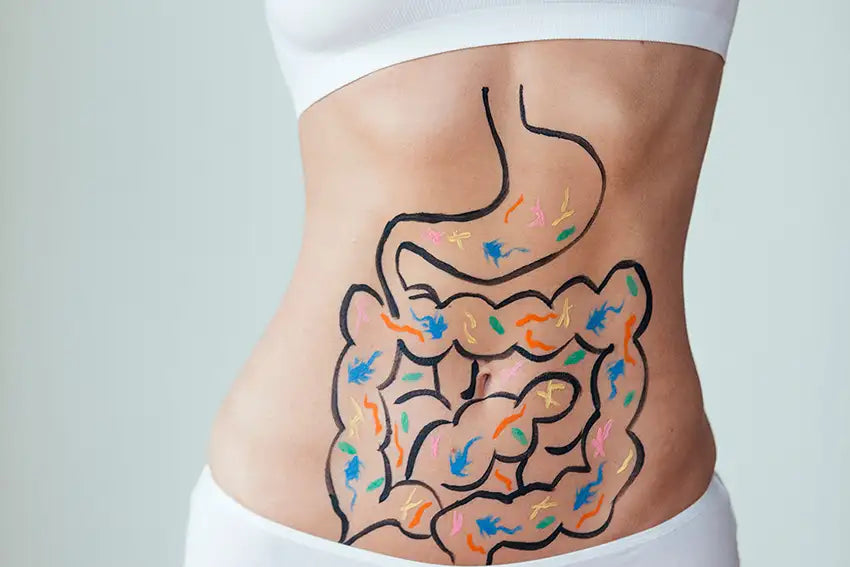
GUT-BRAIN CONNECTION
Recent studies have demonstrated active communication between the intestinal flora and the brain. There is an enteric nervous system in our intestines with its own neurons. We also talk about the second brain . This is closely linked to our intestinal flora and neuroscience is in the process of defining these links, via blood circulation or communications between cells.
We are talking more and more about the role of flora, particularly intestinal but also oral, in the development of neurodegenerative diseases, such as Alzheimer's disease.
The intestinal flora is therefore involved in many vital functions and when it goes wrong or becomes unbalanced, the consequences on health are not neutral.
Dysbiosis or imbalance of intestinal flora
Our intestinal flora is alive, and therefore vulnerable . It can suffer from our bad lifestyle habits: junk food, alcohol, sedentary lifestyle but also from ingested toxic substances: especially pesticides and medications. When the flora becomes unbalanced, we speak of dysbiosis.
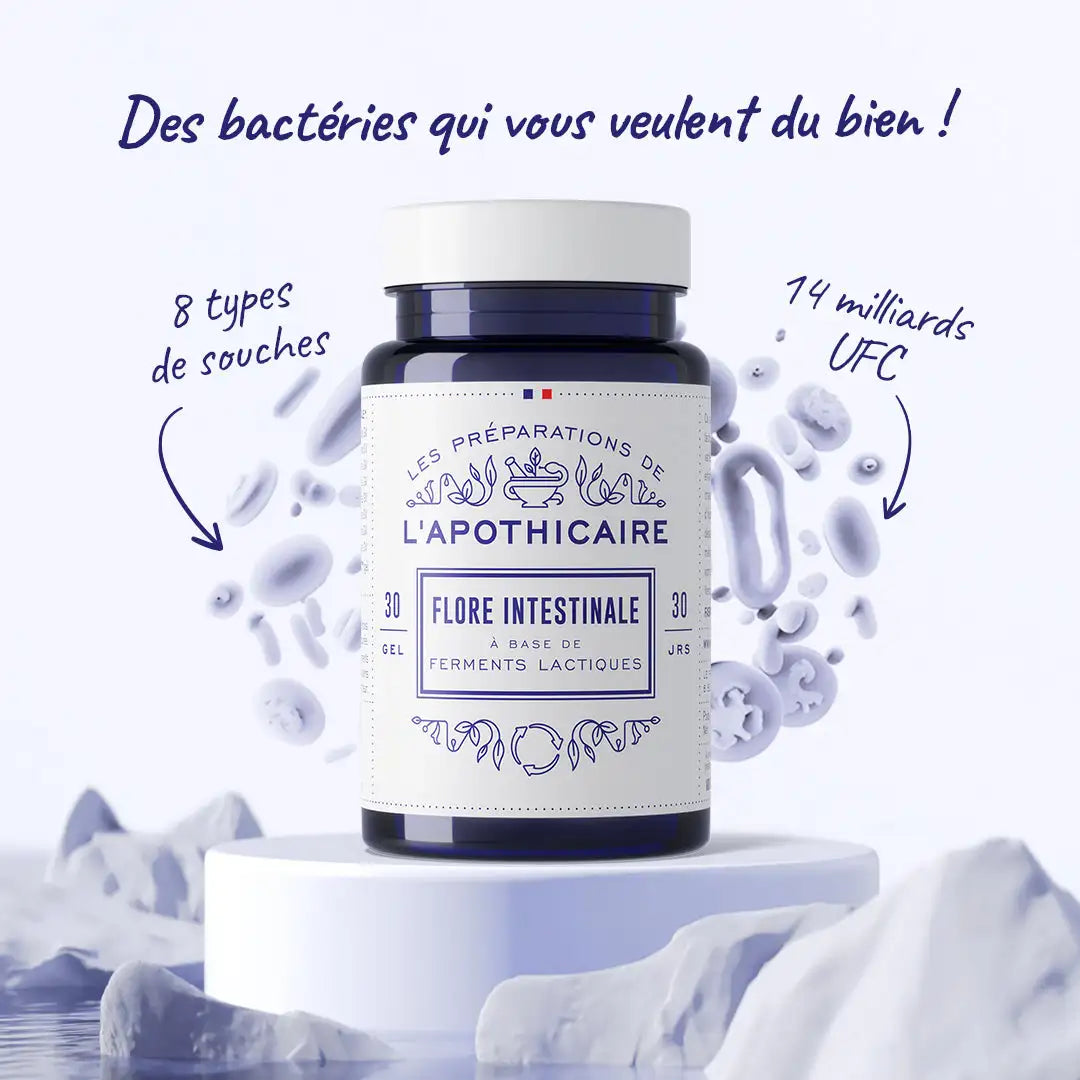
DEPRECIATION OF FLORA
When the flora suffers, certain microorganisms die and microbial diversity is depleted. Dysbiosis appears sneakily.
After antibiotic treatment, the intestinal flora is almost reduced to nothing. It is able to replenish itself naturally but it takes time and energy. Hence the interest in taking probiotics (intestinal flora capsules as a food supplement) when taking an antibiotic which will limit the damage.

LINK BETWEEN DYSBIOSIS AND DISEASES
This dysbiosis, if it lasts over time (repeated antibiotic therapies, too little diet
diversified, ...) will have direct consequences on health and is suspected of participating in the onset of diseases, particularly metabolic ones.
We are talking more and more about the role of the intestinal microbiota in the installation:
- inflammatory bowel diseases called IBD such as Crohn's disease or irritable bowel syndrome
- neurodegenerative diseases such as Parkinson's or Alzheimer's disease.
- type 2 diabetes
- obesity
- of certain cancers
- from depression
- cardiovascular disease
Science is making great strides on the subject, and in the meantime everything suggests that it is essential to take care of your intestinal microbiota.
02. How to take care of the intestinal flora?
As the intestinal flora is alive, it is influenced by what we eat, drink and experience.
Food and intestinal flora
Our plate is the first lever to pamper our intestinal flora.

FIBERS: THE FOOD FOR OUR INTESTINAL FLORA
The micro-organisms of the intestinal flora feed on dietary fiber. This food is also called prebiotics . Fibers are found in:
• fruits & vegetables
• aromatic herbs
• legumes: lentils, beans, peas
• chickpea, red or white bullion beans,...
• oilseeds: nuts, almonds, pistachios, etc.
• seeds: chia, flax, hemp,
• sesame,...
Providing these plant elements in sufficient quantities is essential to properly nourish our intestinal flora.
Modern diets are too low in fiber with ultra-processed foods and excess intake of sugars and refined fats .
It is the nightmare of our microbiota which loves fresh, plant-based and raw foods.

ESSENTIAL NUTRIENTS
Like our body, our flora needs good nutrients to function.
To ensure optimal functioning of the microbiota, ensure regular and sufficient intakes of:
-
Vitamin D : we tell you this a lot, but vitamin D levels are much too low at our latitudes in France from October to April. It is therefore necessary to supplement continuously during these periods on the advice of your healthcare professional.
health. - Magnesium : it is vitamin D's best friend; They help each other to be
well assimilated and we remember that magnesium participates in more than 300 reactions
biochemicals in our bodies.
- Omega 3 : these are good fatty acids that we lack in our diets
modern. - Trace elements : Iron, Phosphorus, Iodine or even Zinc, they are necessary for the life of the
intestinal flora in small quantities but regularly.
Probiotic Cure
When the intestinal flora has suffered after an infection, a depressive episode, or antibiotic therapy , it is interesting to provide reinforcement to our microbiota via probiotics.
Probiotics are food supplements based on non-pathogenic bacteria such as lactobacilli or bifidobacteria.
Probiotics provide support to our suffering flora and help it to replenish more quickly by maintaining the barrier effect locally.
Intestinal flora
- Regular price
-
€15,90 - Regular price
-
€15,90 - Sale price
-
€15,90
Tax included.
Shipping calculated at checkout.
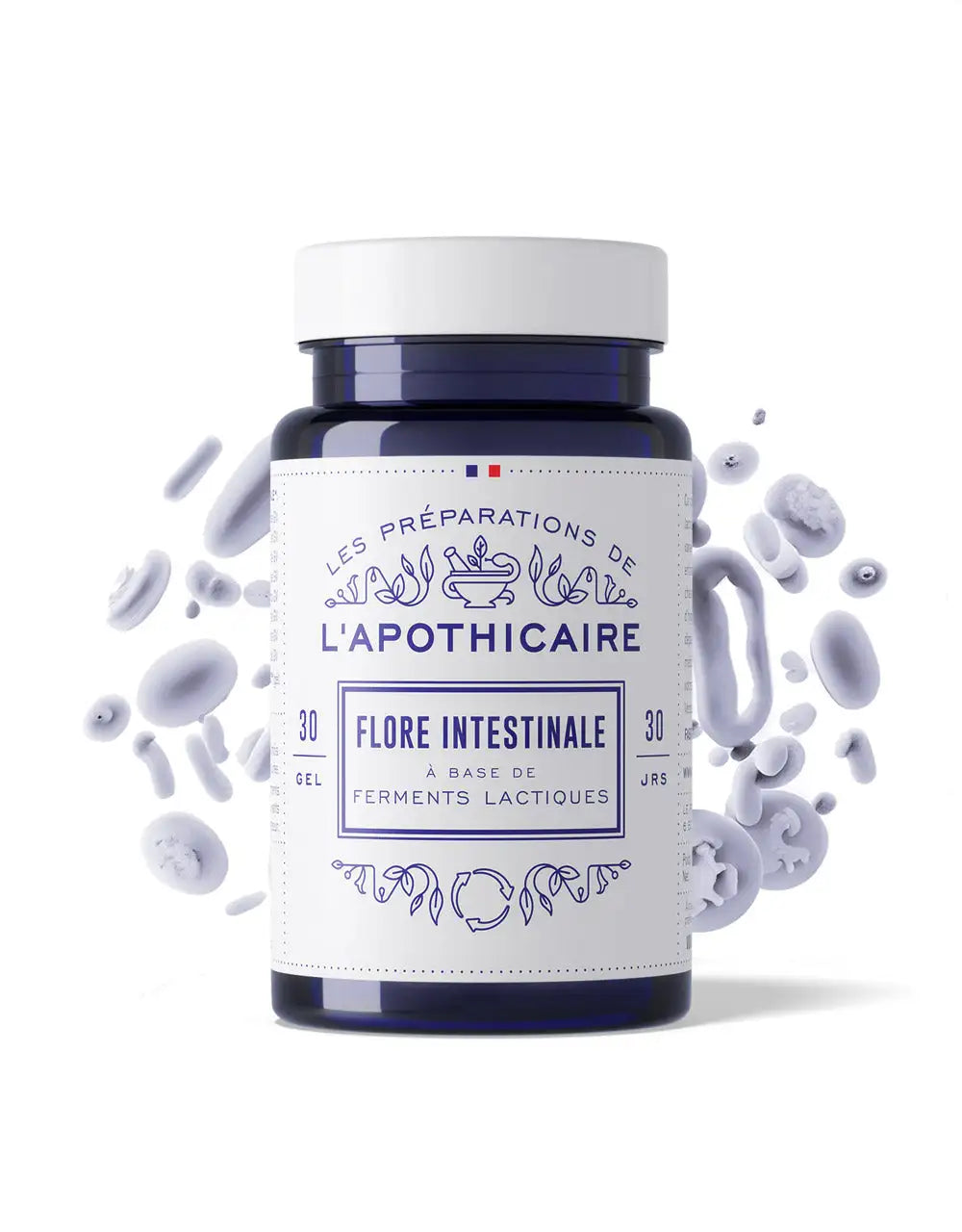
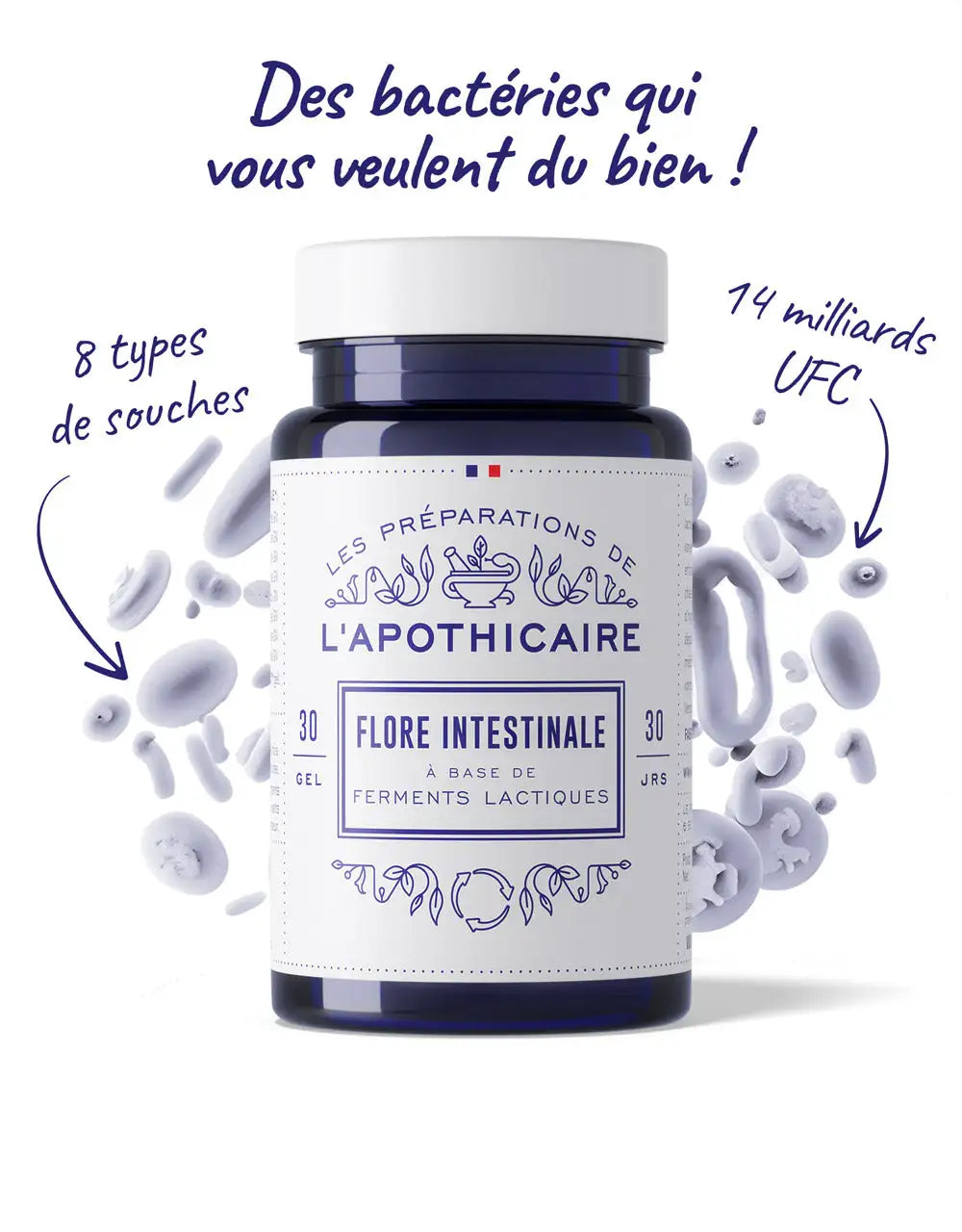
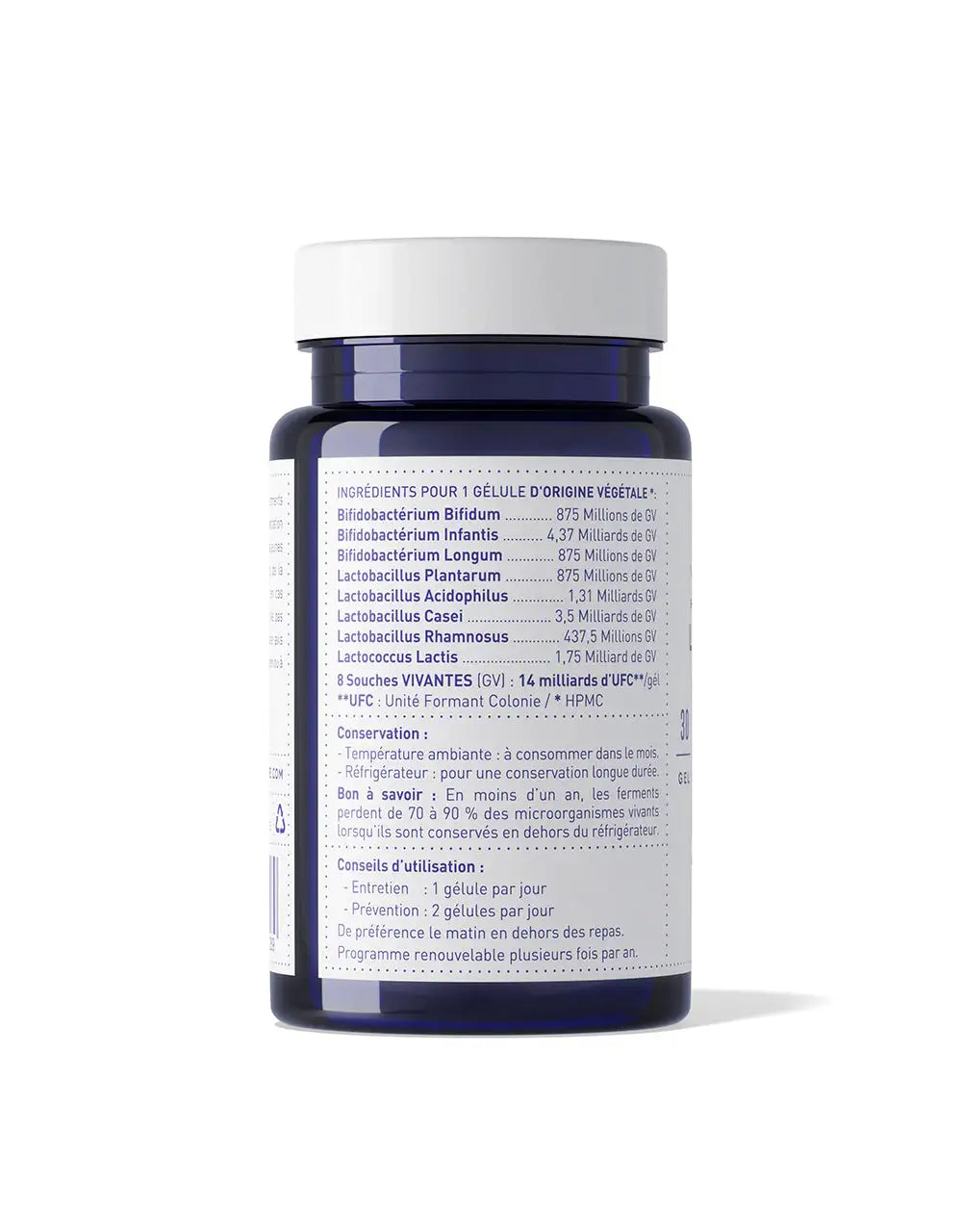
Other hygienic and dietary measures to take care of your intestinal flora
Like any living organism, the intestinal flora reacts to the way we live.

TO MOVE
A sedentary lifestyle is harmful to the flora which likes to have a dynamic environment. Without speaking
extreme sport practice which is conversely bad for the microbiota, an activity
Moderate and regular exercise contributes to healthy intestinal flora.

GET VENTILATION
Breathing is essential and we live in apnea and confined indoors . Taking the time to get some fresh air outdoors and breathe well is essential to properly oxygenate our blood, our intestines and its hosts.

MANAGE YOUR STRESS AND SLEEP WELL
Finally, like humans, the intestinal flora is sensitive to our quality of sleep and our stress.
You can reread our articles on this subject:



